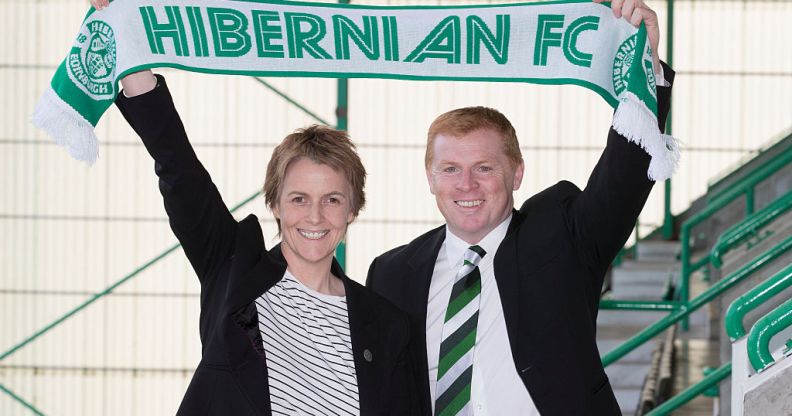Lesbian football boss says Scotland is ready for gay footballer

Hibernian FC chief executive Leeann Dempster (Steve Welsh/Getty)
Leeann Dempster, chief executive of Hibernian FC, has said that she believes Scotland is ready for an openly gay footballer.
In an interview with BBC Sport publibhed on Thursday (May 2), Dempster said it would be “brave” for a football player to come out as gay.
“It would be brave, there’s no doubt about it,” she said. “There are obviously gay footballers. Of course there are. Many of them. One in 10 of the population [is gay], something like that. Well, there are 11 players on the field.”
Lesbian football chief Leeann Dempster called Scotland ‘one of the most progressive countries’
Dempster also said that she loves living in Scotland, which she said is “one of the most progressive countries.”
“You are always going to get people who revert—you are never going to get rid of these people. But the vast majority, because of things like equal marriage and the progressive laws here, would be fine,” she added.
“There are obviously gay footballers. Of course there are. Many of them.”
— Hibernian football club chief executive Leeann Dempster
Dempster also acknowledged that she feels a “responsibility” to speak out about LGBT+ issues in sport.
“There will be people out there finding it difficult reconciling what they are feeling and it’s incumbent on people like me to say ‘follow your instinct and trust in civic society because most folk are good.’”
She also reflected on the career of Justin Fashanu, who became the first openly gay footballer in the UK’s senior men’s leagues in the 1990s. He died by suicide in 1998.
Since his death, there have been no openly gay footballers in the UK’s top leagues. Former Wales rugby player Gareth Thomas once said that football remains in the “dark ages.”
Justin Fashanu was the UK’s first openly gay footballer
Justin Fashanu began his career with Norwich City, turning professional at 17 in 1978.
Over the course of his 20-year-long career, he played for 22 clubs in the UK, the US, Canada and New Zealand.
He came out as gay on October 22, 1990. After coming out in an interview with The Sun, he experienced severe backlash from members of the public and football personalities who said gay men had no place in sport.

No-one playing in the Premier League has come out since Justin Fashanu
A 2016 Stonewall study found that 72 percent of football fans had heard homophobic abuse, and one in five 18-24 year olds said they would be embarrassed if their favourite player came out.
Also, the survey found that young people were twice as likely to think anti-LGBT+ language is harmless if it’s meant to be “banter.”
The charity has run its highly successful Rainbow Laces campaign for a number of years now, which promotes LGBT+ equality in sport by asking players to wear rainbow laces on the pitch.

